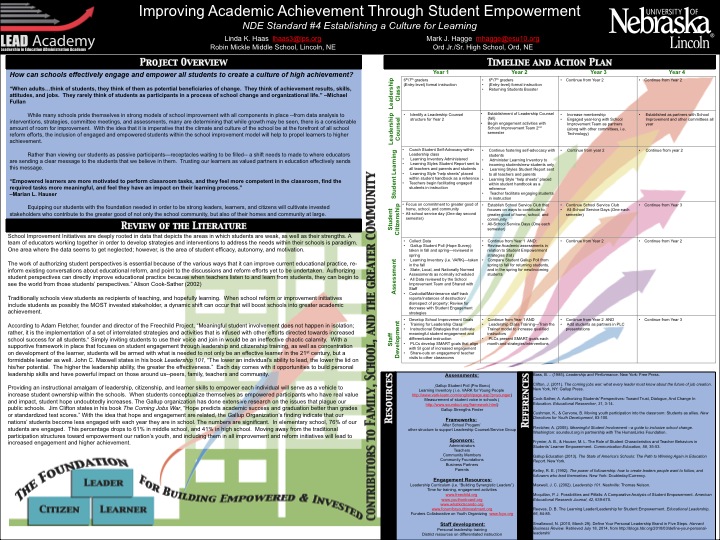Linda K. Haas and Mark J. Hagge
lhaas3@lps.org
mhagge@esu10.org
How can schools effectively engage and empower all students to create a culture of high achievement?
“When adults…think of students, they think of them as potential beneficiaries of change. They think of achievement results, skills, attitudes, and jobs. They rarely think of students as participants in a process of school change and organizational life.” –Michael Fullan
While many schools pride themselves in strong models of school improvement with all components in place --from data analysis to interventions, strategies, committee meetings, and assessments, many are determining that while growth may be seen, there is a considerable amount of room for improvement. With the idea that it is imperative that the climate and culture of the school be at the forefront of all school reform efforts, the inclusion of engaged and empowered students within the school improvement model will help to propel learners to higher achievement.
Rather than viewing our students as passive participants—receptacles waiting to be filled-- a shift needs to made to where educators are sending a clear message to the students that we believe in them. Trusting our learners as valued partners in education effectively sends this message.
“Empowered learners are more motivated to perform classroom tasks, and they feel more competent in the classroom, find the required tasks more meaningful, and feel they have an impact on their learning process.”
–Marian L. Hauser
Equipping our students with the foundation needed in order to be strong leaders, learners, and citizens will cultivate invested stakeholders who contribute to the greater good of not only the school community, but also of their homes and community at large.
